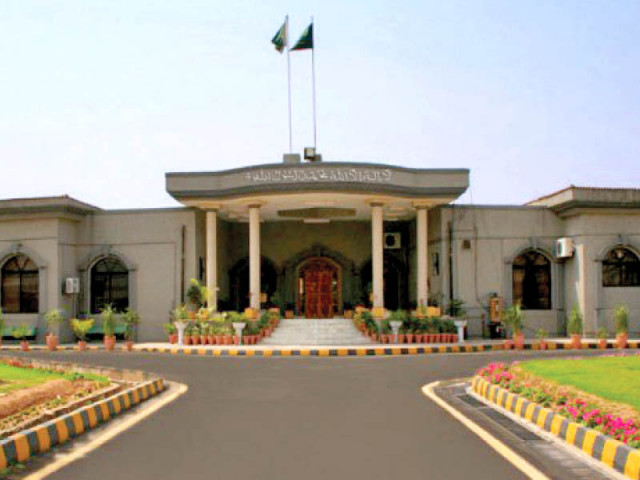Challenging the challenger: Maintainability of dharna relocation petition questioned
IHC judge notes petitioners have not availed all remedies before approaching court

IHC judge notes petitioners have not availed all remedies before approaching court. PHOTO: EXPRESS
When the case was taken up on Thursday, the petitioners’ counsel Hasan Murtaza Mann said that government should secure the fundamental rights of citizens as well as making arrangements to ensure that the protesters do not disturb public order, keep the protest peaceful, and stay within the clearly demarcated area.
“How do you know protest would not be peaceful?” asked Justice Aamer Farooq, adding that the court cannot decide a matter merely on the basis of assumptions and statements given to the press.
Justice Farooq further said that all the institutions are bound to fulfill their constitutional responsibilities, and for this, no decision is required.
“Have the relevant departments already failed to fulfill their responsibilities?” he asked.
“Has anyone submitted an application to the chief commissioner saying they would protest and close down the city? Has the commissioner issued a decision on any such application,” he continued.
Mann said that the petitioners just want to ensure that that a situation similar to the 2014 sit-ins is not repeated.
To this, the court said that if the petitioners were willing, the matter could be sent to the chief commissioner, or they can wait for an order from the Supreme Court, where a similar case is being heard.
Apparently, the court remarked, it seems that everything is still up in the air at the moment, and the petitioners have not tried to avail a remedy before coming to the high court.
Subsequently, the court fixed the case for Monday, with directions to the counsel to further argue over the maintainability of the petition.
Petitioners Muhammad Yaqoob and Shehzad Ahmed Mir had approached the IHC after PTI Chairman Imran Khan urged the masses to be ready for a “decisive sit-in in Islamabad” if Prime Minister Nawaz Sharif fails to present himself for accountability.
The petitioners made the federation, through the Ministry of Interior, and the PTI, through party chairman Imran Khan, respondents.
While referring to the 2014 sit-in, the counsel said that in addition to administrative and economic losses caused by the protest, the “common man suffered badly – probably, the most.” He added that the whole city was engulfed by feelings of insecurity and uncertainty, as leaving the house for work and other routine activities became difficult.
Among several other issues, they cited the closure of several educational institutions across the capital city because over 50 schools and colleges in the capital were converted into temporary barracks for Pakistan Rangers and police officials who had been brought in from Punjab and Azad Jammu and Kashmir to bolster the numbers of the capital police during the dharna.
In the petition, Mann argued that it is an established principle of law that where fundamental rights conflict with each other, “lesser rights”, such as the right to assembly and speech, yield in favor of “higher” fundamental rights – such as the right to life under Article 9.
The petitioners suggested that the court assign a separate space, such as Fatima Jinnah Park or the Parade Ground, to PTI and its supporters for the demonstration. They also requested the court to restrain the PTI from blocking access to government offices.
Published in The Express Tribune, October 21st, 2016.



















COMMENTS
Comments are moderated and generally will be posted if they are on-topic and not abusive.
For more information, please see our Comments FAQ